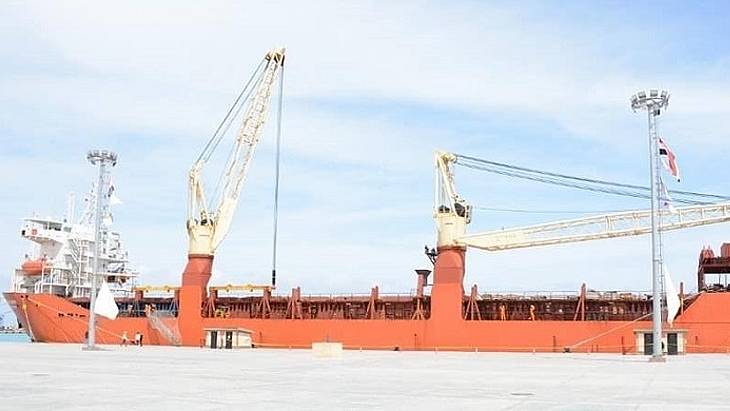Mohammed Ramadan, deputy chairman of the Egyptian Nuclear Power Plant Authority (NPPA), Mohammed Dvidar, project manager of the El Dabaa nuclear power plant, and Grigory Sosnin, JSC ASE vice president and project director for the construction of El Dabaa plant, were on hand to mark the moment.
Sosnin said the arrival of the melt trap was an important event: "this is one of the most important elements from the point of view of the safety of nuclear power plants with a generation 3+ VVER reactor, and this confirms that we are building the safest nuclear power plant in the world".
Ramadan called it a "key milestone": "The NPPA, in cooperation with other Egyptian entities, exerted significant efforts to fulfil the infrastructure requirements related to the implementation of the project, including in particular, constructing a docking facility at the site to receive heavy and oversized equipment and ensuring the readiness of the docking facility to receive the first long lead equipment of the NPP (nuclear power plant). The core catcher for unit 1 is the first shipment to arrive to the docking facility constructed at the site and marks a landmark moment in the history of the El Dabaa NPP Project."
The 6.1 metre diameter core catcher is a key part of the passive safety systems for the VVER-1200 reactor. It is in the shape of a steel cone "which in case of an emergency, securely retains the fragments of the molten core and prevents the discharge beyond the reactor building containment", Rosatom said.
The El Dabaa nuclear power plant project - about 320 kilometres north-west of Cairo - is based on contracts that entered into force on 11 December 2017. The plant will comprise four VVER-1200 units, like those already in operation at the Leningrad and Novovoronezh nuclear power plants in Russia, and the Ostrovets nuclear power plant in Belarus.
The contracts stipulate that Rosatom will not only build the plant, but will also supply Russian nuclear fuel for its entire life cycle. They will also assist Egyptian partners in training personnel and plant maintenance for the first 10 years of its operation. Rosatom is also contracted to build a special storage facility and supply containers for storing used nuclear fuel.







_15863.jpg)







